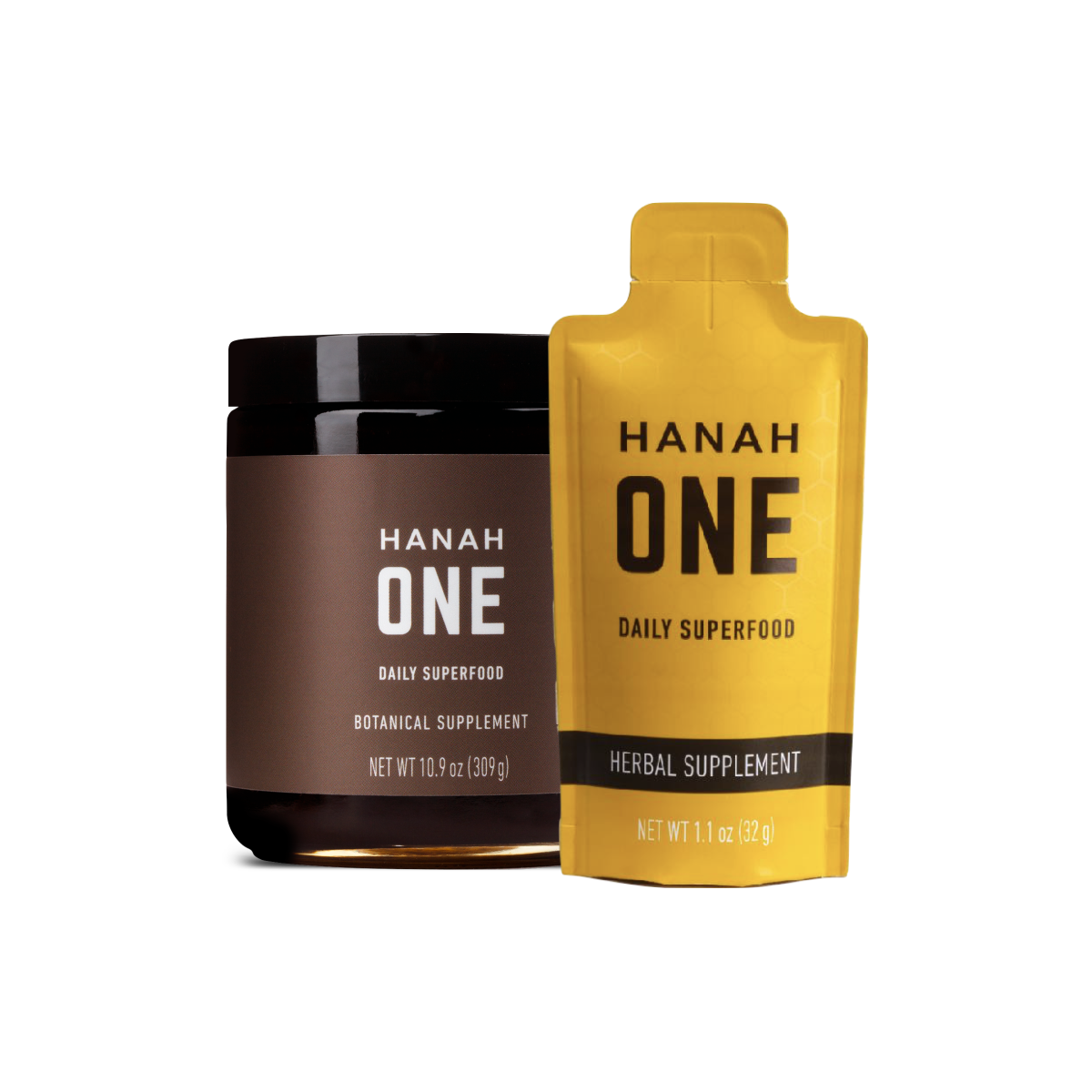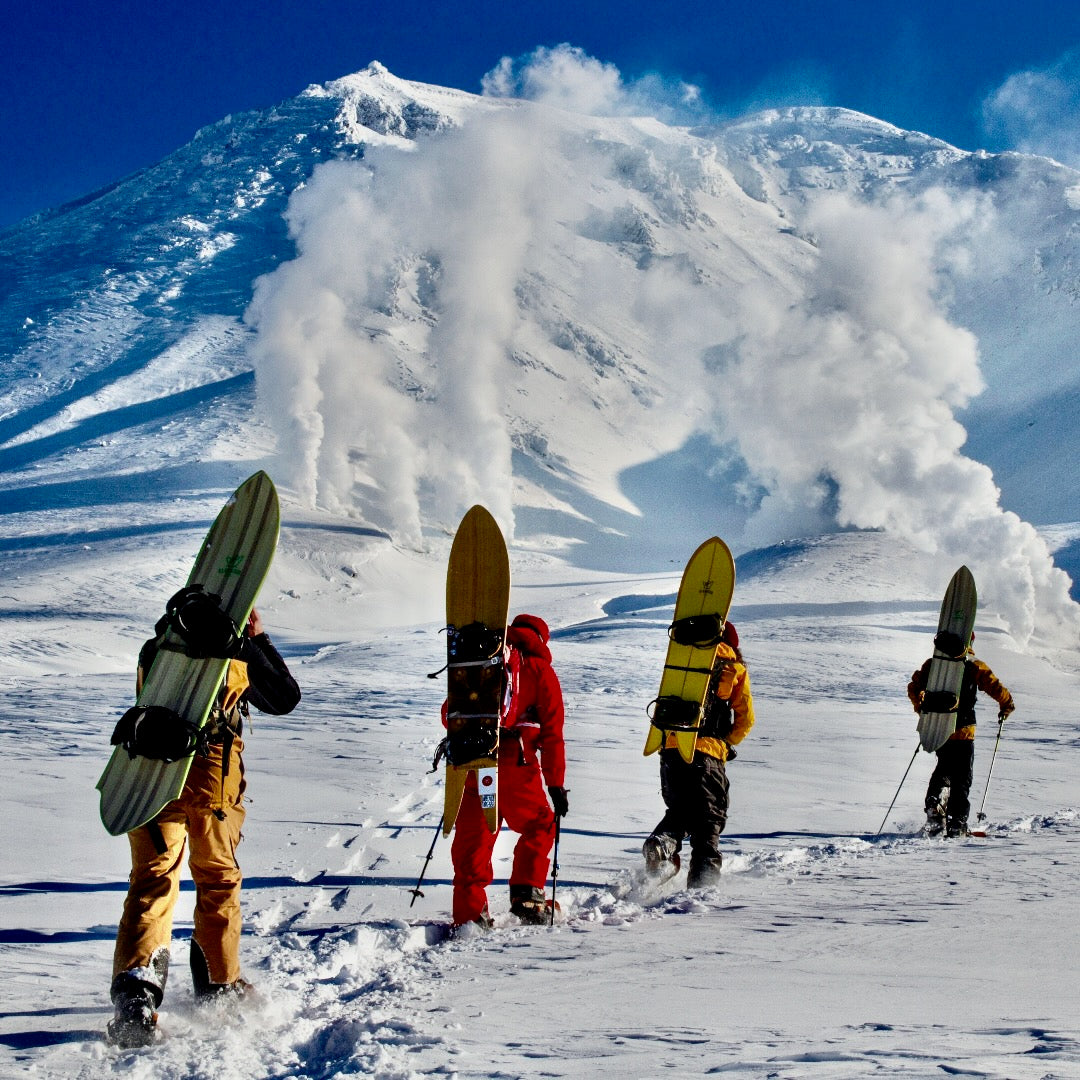Know your nootropics: Why coffee is king of mental stimulants

A brief history of coffee and what’s next (Coffee Boost!)
In the launch post for our latest product, HANAH Coffee Boost, we mentioned that the three herbs in our unique blend – ashwagandha, Mucuna pruriens, and Bacopa monnieri – are all nootropics that can give your coffee (and hot water or tea) a brain-fueling lift. We’ve got a bit more to say about this, but first, let’s take a look at the most pervasive nootropic out there – coffee itself.
A brief history of coffee
Depending on which origin myth you subscribe to, coffee in the modern world became a commodity due to its discovery in either Ethiopia or Yemen. In the former, a goat herder noticed that his animals started jumping around like lunatics after eating the berries from a certain bush he’d never seen before. He got in the act and then spread the word to surrounding villages. Soon coffee was being cultivated all over Ethiopia, which is still one of the world’s biggest producers today.
In the latter story, Omar, a doctor-priest, was exiled to the Yemeni desert. While wandering the endless wilderness, he stumbled across the red berries of the coffee plant, but when he popped a couple into his mouth he found them too bitter. He threw them in his campfire and then put them in some boiled water. The resulting brown liquid was much more palatable, and he drank it down. The story about his discovery soon made its way across the region, including to Omar’s hometown of Mokha (so that’s how the Starbucks staple got its name!), where it reportedly cured so many people’s health problems that monks built a monastery in Omar’s honor (see Dave Eggers’s remarkable book The Monk of Mokha for more context on this, and a modern Yemeni-American’s captivating coffee story).
Regardless of which of these stories is true – if either of them – it didn’t take long for coffee to spread outside of its native lands and around the world. Two of the main catalysts in the 1500s, 1600s, and 1700s were improvements in transportation and development of the early stock markets. While a limited quantity of coffee beans could be carried by camels or wagons pulled by mules or horses, it wasn’t until European nations pioneered advances in boat design that coffee started to become the drink of choice across the wider world. Sleek ships began exporting coffee to ports and cultural hubs like Amsterdam in Holland, Lisbon in Portugal, and Trieste in Italy. Eventually, the tea drinkers in England got wise, too, and beans began coming into London and other coastal cities by the warehouse load.
It’s no coincidence that these port cities were not only the places that goods were imported to and exported from. They were also where commodities were traded, and coffee soon became one of the hottest tickets in town. What were known at the time in England as “stock jobbers” (an archaic term for what Wall Street now calls traders) the coffee of a certain company, and its prices rose. Similarly, unscrupulous traders tried to spread rumors about the supposedly poor quality of other importers’ beans to make their prices drop. Then once the gossipers had done their thing, they’d swoop in and buy the low-priced stock (read the brilliant historical novel The Coffee Trader by David Liss for more on all of this).

This is your brain on coffee
OK, history lesson over. The real question here is why, outside of greedy merchants and stock traders and advances in shipping, did coffee become a global phenomenon? The answer is simply that when well-sourced, it tastes great and makes you feel like you’re a better version of yourself. This is due in large part to the nootropic benefits the coffee provides. There are plenty of studies to show that it boosts endurance, reduces perceived exertion, and extends time to exhaustion, all of which athletes are very grateful for. But it’s what coffee does to your brain that’s perhaps even more promising.
A comprehensive review of the literature conducted in 2016 concluded that there’s a consensus among researchers that caffeine improves “lower order” cognitive functions such as vigilance, focus, and reaction time. And – no surprises here – consuming up to 300 milligrams of caffeine can also help people temporarily overcome the physical and mental sluggishness caused by inadequate sleep.
While there’s a robust debate among sleep researchers whether kids and teenagers should be allowed to consume any caffeine at all, findings suggest that coffee consumption later in life can significantly prevent age-related cognitive decline and possibly even ward off conditions such as Alzheimer’s and dementia. A Finnish research duo caused a stir when they reported that drinking three to five cups of coffee in middle age reduced the risk of developing either of these debilitating conditions by a whopping 65 percent. What’s that, barista? Yep, I’ll take a refill, please.
There also appears to be compound benefits from combining moderate coffee intake with other lifestyle choices. A paper published in The Journal of Nutrition found that people who drank coffee, consumed alcohol in moderation, and had a healthy diet displayed better attention, memory, and executive function.
Espresso with friends
Andrew Smith from Cardiff University in Wales conducted a study on what he called “caffeine-extraversion interactions,” in which extraverts were dosed with 65 milligrams of caffeine and then asked to perform a series of memory-dependent tasks. He concluded that, “caffeine improved simple reaction time and the speed of encoding of new information,” and made a connection between caffeine consumption and overall cognitive performance (and your guess is as good as ours why caffeine impacts extraverts more than introverts).
Drinking coffee alone is pleasant enough, but when you do it with other people, your mind really starts to spark. Researchers from the University of California, Davis discovered that when a group gathers to share coffee and conversation, they are more fully engaged than those who get together without drinking coffee. Each caffeinated participant was more receptive to new ideas, while the group as a whole was more focused and dynamic than their non-caffeinated peers.
Coffee doesn’t just increase cognitive performance, boost memory, and improve group dynamics. It might well make you live longer too. A review of Biobank data on 500,000 people in the UK found published in JAMA Internal Medicine discovered that coffee drinkers live longer than those who shun the bean, and that those who drink the most coffee have even greater longevity. While this was an observational study that didn’t include other possible lifestyle factors, the huge sample size suggests that coffee drinkers are onto something.

Brewing coffee 2.0 (or...Your coffee, only better)
As impressive and wide-ranging as the nootropic and overall health benefits of coffee are, there’s now a way to amplify these: HANAH Coffee Boost. We worked closely with our team in Kerala, India, to select and source three herbs – ashwagandha, Mucuna pruriens, and Bacopa monnieri – that all have nootropic brain-boosting qualities. Then we put them in a base of powdered coconut milk, which has a high percentage of quality fats that level out the absorption of caffeine to help you avoid that horrible mid-afternoon crash.
Ashwagandha is a powerful adaptogenic herb which may support stress relief, mood and hormonal balance. Bacopa monnieri is renowned as a brain tonic and may support memory, mental clarity, mood, healthy circulation and overall brain health. Mucuna pruriens, also called the dopamine bean, is a natural source of L-Dopa and may elevate mood, creativity, neuromuscular coordination and brain health.
When you stir a spoonful into caffeine (it works equally well in tea, smoothies or even hot water), the result is a drink that not only has a rich, smooth taste, but also helps your brain achieve the kind of flow state that’s associated with peak creativity, athletic performance, and embodiment of whatever you’re experiencing (think a concert pianist’s fingers flying across the keys, a writer banging out a short story in one go, or a surfer cruising down the face of a wave). If you want more from your cup of Joe, give HANAH Coffee Boost a try, and let us know what benefits you notice.







Leave a comment
This site is protected by hCaptcha and the hCaptcha Privacy Policy and Terms of Service apply.